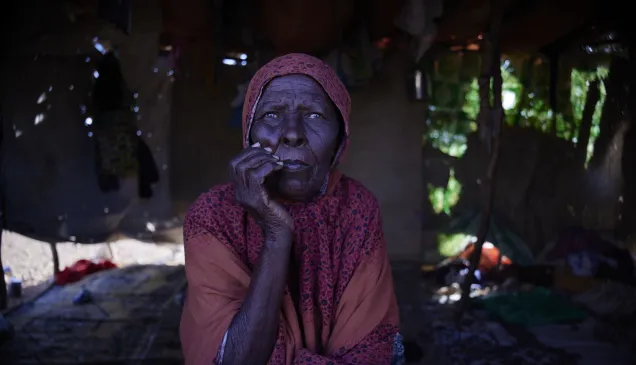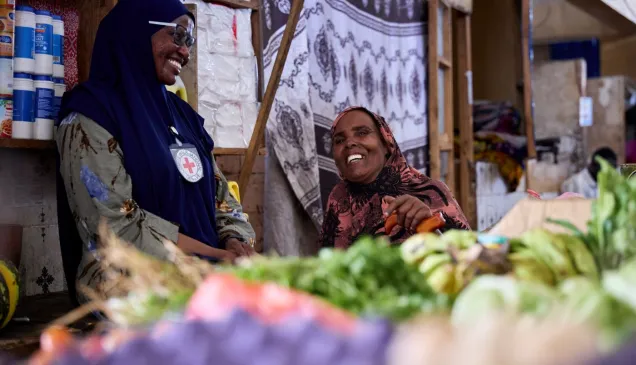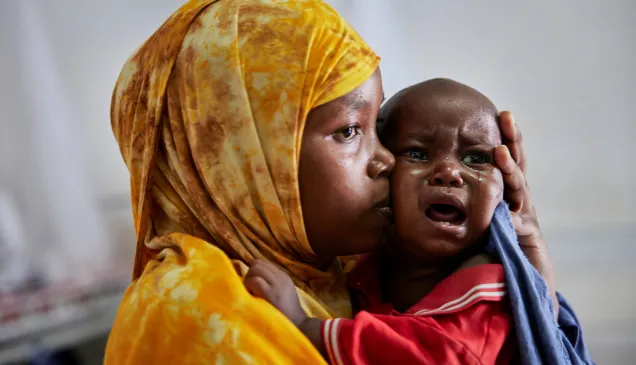Asli Salad has been selling clothes in Mogadishu for more than 20 years. Number of buyers have dwindled since the onset of the COVID-19 pandemic. After receiving USD 500 from the ICRC, she has stocked up more clothes and used the remaining money to support her 10 children.
Somalia: Cash and business skills training support to women-headed businesses
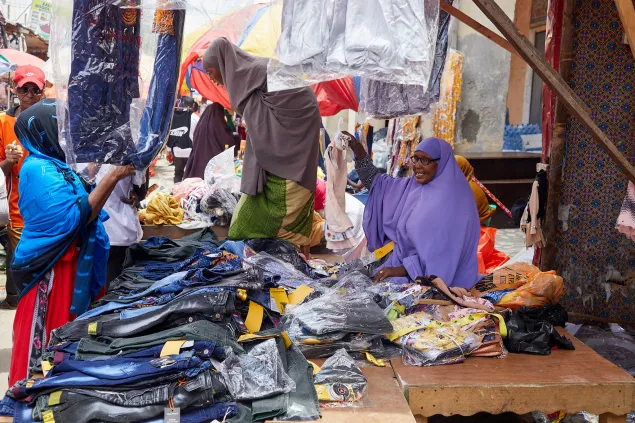
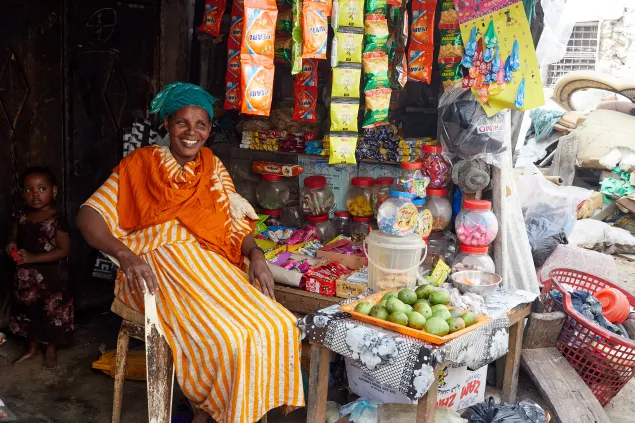
Ebla Mukhtar Guhad has been running her retail shop for the past 30 years. She sells mangoes and bananas, as well as milk, cold drinks, balloons and candy. Her husband runs a laundry business, and the two are raising their seven children with both their income.
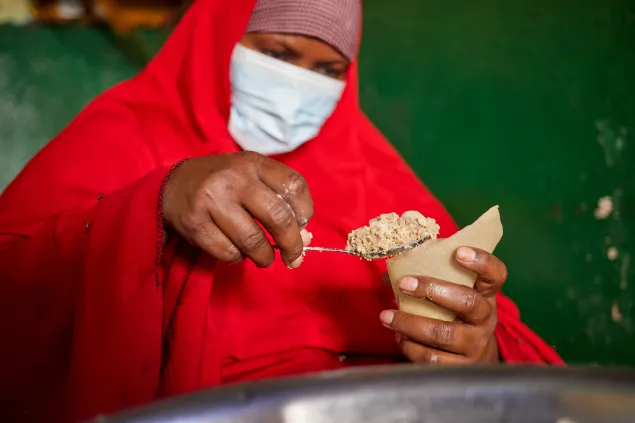
Duniyo Mohamed Ahmed, 36, has owned a café in Mogadishu for the past seven years, where she prepares Somali cuisine meals.
“Before the pandemic, the restaurant was always packed for breakfast and lunch.”
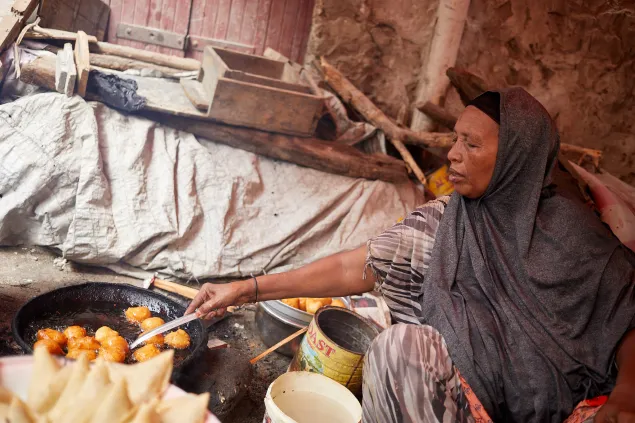
Faduma Mohamed Abdirahman has been in the baking business for 30 years now. Every day at 6:00 a.m., she opens her café to cook the pastries. Early mornings and late afternoons are her busiest hours, as Somalis enjoy their pastries with Shaah - a cup of hot spicy tea.
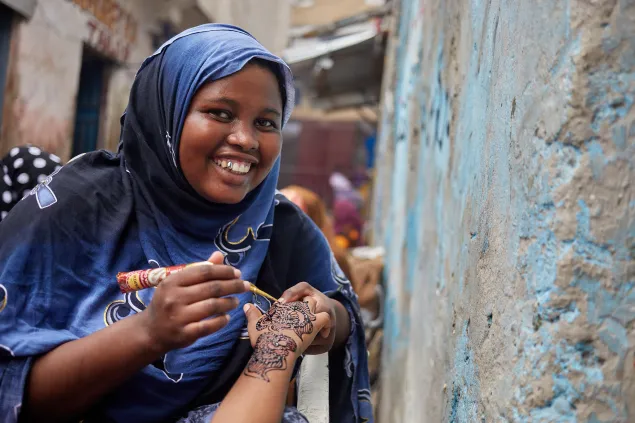
Faduma Ahmed is a self-taught henna artist in Mogadishu. She is a single mother with one child, and her money allows her to support her family. “I am pleased and delighted to see my customers leave my salon feeling beautiful and smiling,” she says.
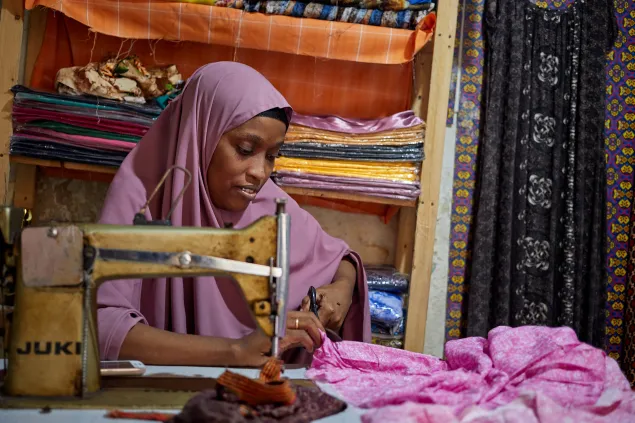
Maryan Abukar Haji is Hamar Weyne's only female tailor and her specialty is designing and sewing women clothing. She has also benefitted from cash and business skills training.
Today marks the International Day of Micro, Small and Medium Enterprises (MSMEs). Small businesses led by women and young entrepreneurs continue to face the pandemic's wrath economically. Lockdown measures implemented to prevent the spread of the COVID-19 virus have wreaked havoc on supply chains and resulted in a significant drop in the demand for goods.
Through micro-economic initiatives, the ICRC supports vulnerable low-income families to start, restart or expand existing small businesses that can contribute to their family income, ultimately leading to an improved and sustainable livelihood.
In Somalia, the main micro-economic initiative being implemented is focused on cash support combined with training on business skills that targets vulnerable women-headed households. More than 200 women business owners in Mogadishu received USD 500 dollars and training to improve their businesses this year.
We feature six women-led businesses in Hamar Weyne, Mogadishu city.

